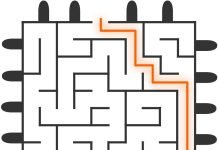
Employees who regularly interact with artificial intelligence (AI) systems could be more prone to loneliness, leading to insomnia and an increase in after-work drinking, according to a study published by the American Psychological Association.
Researchers conducted four experiments in the US, Taiwan, Indonesia, and Malaysia, with results consistent across cultures.
Pok Man Tang, Ph.D., the lead researcher and an assistant professor of management at the University of Georgia, believes the rapid advancement in AI systems is transforming workplaces.
While it has numerous benefits, it also presents potential dangers, including potential adverse mental and physical impacts on employees.
He emphasized that humans are social beings, and isolation when working with AI systems could lead to negative effects in employees’ personal lives.
Findings
The researchers found that employees who frequently used AI systems were more likely to extend help to their coworkers, possibly driven by their sense of loneliness and need for social contact.
Moreover, employees with higher levels of attachment anxiety—characterized by insecurity and worry about social connections—exhibited stronger reactions to working with AI systems, both positive and negative.
In one experiment involving 166 engineers at a Taiwanese biomedical firm, the researchers found that employees who interacted more with AI systems were more likely to experience loneliness, insomnia, and increased after-work alcohol consumption.
However, they also exhibited helpful behaviors towards their colleagues.
Another experiment involving real estate consultants in Indonesia found similar results, except that there was no association between the frequency of AI use and after-work alcohol consumption.
The researchers cautioned that these findings are correlational and do not establish that working with AI systems directly causes these responses.
Recommendations
Pok Man Tang suggested that AI technology developers should consider incorporating social features into AI systems, such as human-like voices, to emulate human interactions.
Employers should also consider limiting the frequency of work with AI systems and providing opportunities for employees to socialize.
Tasks requiring social connections could be assigned to people, while AI systems could handle repetitive tasks.
In addition, Tang suggested the introduction of mindfulness programs and other positive interventions to alleviate loneliness.
With the continued expansion of AI, measures to mitigate potential negative impacts on people working with these systems should be implemented promptly.
If you care about sleep, please read studies about exercise that can help you sleep better, and this new drug could reduce symptoms of sleep apnea.
For more information about wellness, please see recent studies about drug that can treat sleep loss and insomnia, and results showing these antioxidants could help reduce dementia risk.
The study was published in the Journal of Applied Psychology.
Copyright © 2023 Knowridge Science Report. All rights reserved.




